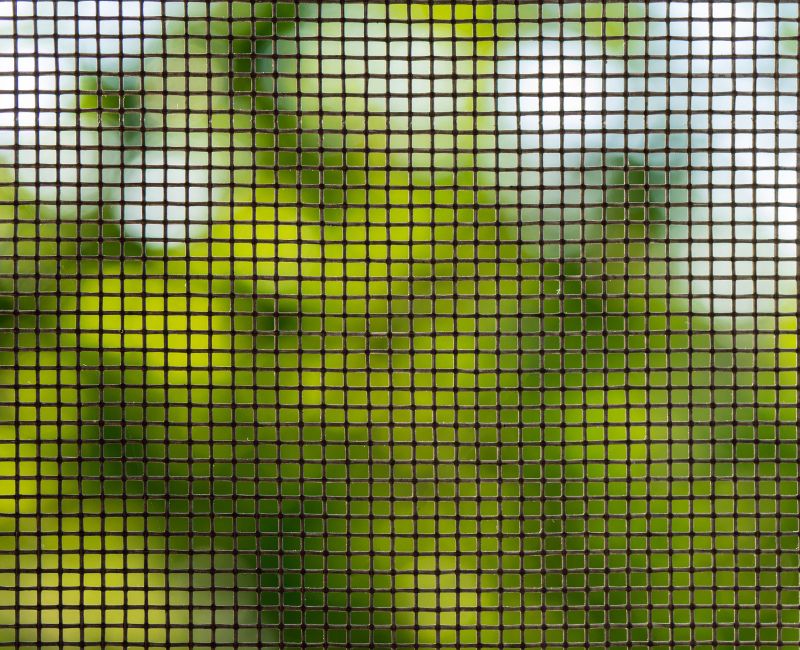
When you think about what makes your windows look dingy or covered in streaks, your mind probably jumps straight to fingerprints, smudges, rain, or just time and dust buildup. But there’s a sneaky culprit behind much of that grime that you might not have considered: your window screens.
Yes—those mesh panels meant to keep bugs out and let fresh air in could actually be working against your clean-window goals. Dirty window screens are one of the most common (and overlooked) causes of perpetually dirty windows. Let’s dive into why this happens and what professional window cleaners do to solve it.
How Window Screens Trap—and Transfer—Dirt
Over time, window screens collect dust, pollen, pollution, spider webs, and grime. This is especially true if you leave your windows open often or live in an area with heavy traffic, construction, or high winds. Think of your screens like a filter—everything in the air hits them first. Unfortunately, all that debris doesn’t just stay on the screens. It can easily transfer to your windows, especially when it rains or during a gusty day.
When moisture mixes with the dirt trapped in your screens, it can create a sort of sludge. That grimy mixture can then streak or drip down your windows, leaving behind tough-to-remove residue and stains. If you’ve ever wondered why your windows still look cloudy even after a fresh cleaning, your screens might be to blame.
Screens Can Scratch or Smear Windows
In addition to transferring grime, dirty screens can also lead to subtle scratching on your window glass. As wind pushes the screens against the panes, abrasive dirt particles may rub between the surfaces. Over time, this can cause minor scratches or hazy patches that are nearly impossible to remove with regular cleaning.
In some cases, screens begin to deteriorate—especially older aluminum or fiberglass screens. These can break down and leave behind a chalky residue or little metal flecks that make your windows look worse, not better.
Professional Window Cleaners Know the Secret
When professionals clean your windows, they don’t just focus on the glass. They know that clean screens are just as important to getting that crystal-clear, streak-free finish you’re hoping for.
A high-quality window cleaning service typically includes screen cleaning as part of the package—or at least offers it as an add-on. Pros will gently remove your screens, wash them with specialized screen-cleaning tools and solutions, and allow them to dry completely before reinstalling. Some will even recommend screen replacement if the mesh is torn, worn out, or too gunky to get fully clean.
Professionals also know to clean the window sills, tracks, and frames—all areas where grime from dirty screens can settle. When all components of your window system are properly cleaned, your windows stay cleaner for longer.
Signs Your Screens Need Attention
Here are a few signs your window screens may be contributing to dirty windows:
- Your windows get dirty again shortly after cleaning. If your screens aren’t clean, they’ll transfer grime right back to your glass.
- You see streaks or smudges near the edges or base of your windows. This is a common place for dirty screen runoff to settle.
- Your screens look gray, dull, or have visible dust buildup. If they look dirty, they are dirty—and probably spreading it to your windows.
- You can’t remember the last time you cleaned or replaced them. Screens should be cleaned at least once or twice a year and replaced every few years if they show signs of wear.
How to Clean Your Window Screens
If you’re tackling screen cleaning yourself, here’s a simple way to do it:
- Remove the screens carefully from the windows.
- Vacuum each screen with a soft brush attachment to remove loose debris.
- Wash with soapy water using a soft-bristle brush. A mix of water and dish soap works well.
- Rinse thoroughly with a hose or under a faucet.
- Dry the screens completely before reinstalling to avoid water spots or mold buildup.
Some screens can also be sprayed with a vinegar and water solution for extra disinfecting power.
If this sounds like a chore—or if your screens are too fragile or large to handle easily—this is where hiring a pro can really pay off.
The Bottom Line
Keeping your windows clean is about more than just polishing the glass. Your screens play a bigger role than you might think in keeping your windows sparkling—or making them look streaky and dull. Dirty screens trap grime, transfer debris, and even cause scratching, all of which can undo even the best window-cleaning job.
The good news? With a proper screen cleaning routine—or help from a professional—you can extend the life of your windows, enjoy clearer views, and boost your home’s curb appeal.
So next time you notice smudged or dusty windows, don’t just grab the glass cleaner. Take a closer look at your screens—they might be the dirty little secret behind your cloudy view.